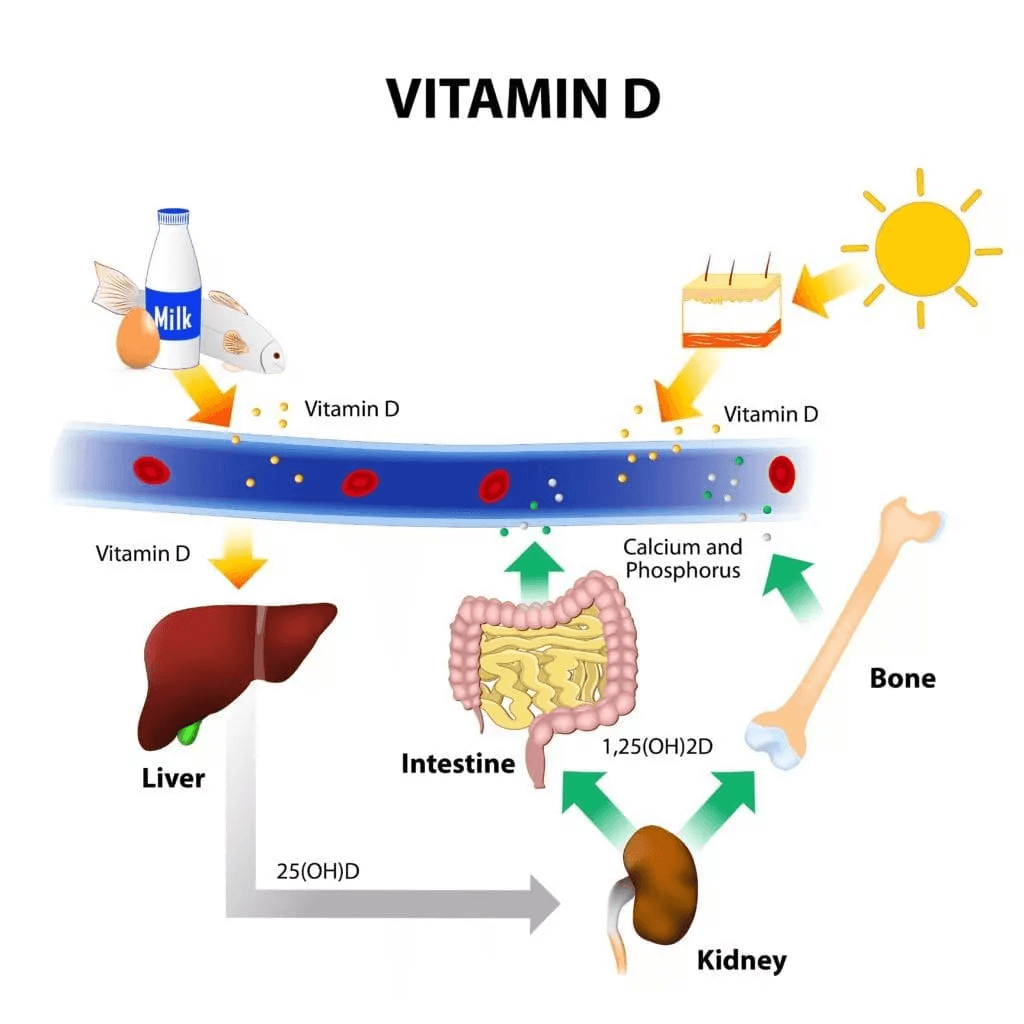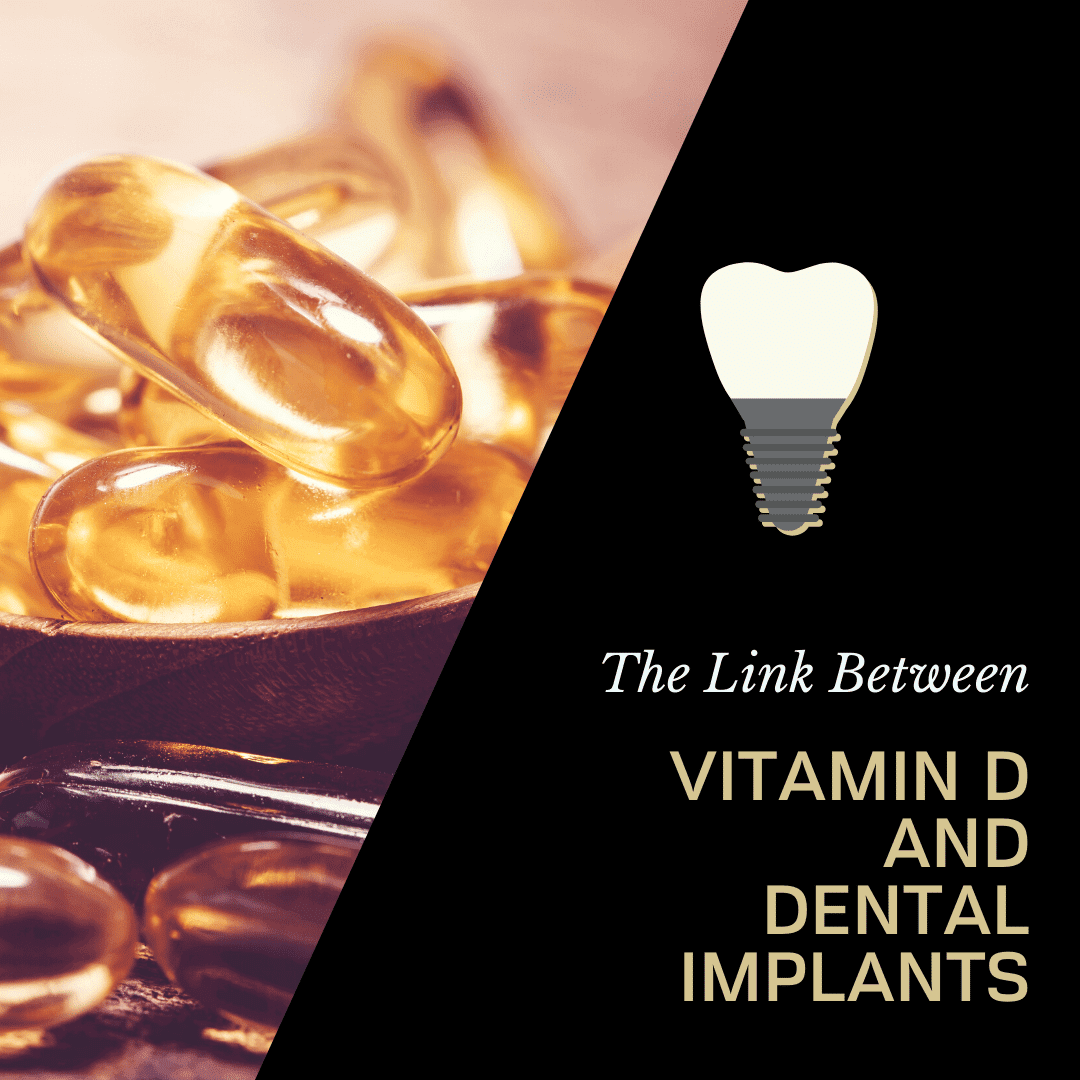When many people think about how to care for their mouth after having a dental implant placed, they focus on brushing twice a day and flossing once a day, as well as following any other instructions provided by their dentist. While these are all highly important and will definitely help to improve treatment outcomes, there is one other thing you can do to increase the chances of treatment success.
Since your oral and overall health are closely related, it is important to make sure you are in generally good health before having dental implants placed. Additionally, you will also want to have your vitamin D level checked to make sure your body is getting enough. Although many people are unaware of this, vitamin D can negatively or positively affect your new dental implant.

To understand how vitamin D is related to dental implants, we must first look at what vitamin D does for the body. Calcium and phosphorus can only be absorbed through the large intestine when vitamin D is present. Therefore, vitamin D is an integral part in maintaining bone health and promoting new bone growth. In fact, people with vitamin D deficiencies often have decreased bone mass and bones that can fracture easily.
After a dental implant is placed in the jawbone, it is left to heal by fusing with the surrounding bone. In order for the implant to be successful, it must fuse, or osseointegrate, with the jawbone. This means that new bone must be produced by the body. People with a vitamin D deficiency may not be able to grow enough new bone, while those with adequate vitamin D levels will have a better chance of developing healthy, new bone.
Unfortunately, the National Center for Biotechnology Information database has a study from 2011 that notes as many as 41.6% of people are affected by a vitamin D deficiency. People who spend a lot of time indoors, frequently wear sunscreen, have darker skin, are older, are overweight, or consume little fish and dairy are at an increased risk for developing a deficiency in vitamin D.
Part of the problem is that vitamin D is primarily absorbed by the body through sunlight and is hard to get enough by diet alone. Another problem is that many people don’t even realize they are deficient. Luckily, a simple blood test can determine whether you need to get more vitamin D. There are also some possible signs that can indicate a vitamin D deficiency, including:
- Hair loss
- Bone pain
- Muscle pain
- Fatigue
- Bone loss
- Depression
- Wounds that don’t heal
- Getting sick a lot
When a vitamin D deficiency is diagnosed by your primary physician, they may recommend that you get more sun, eat more fatty fish and dairy products, and/or take a vitamin D supplement. Vitamin D supplements are affordable and available over the counter. The daily recommended amount is 600 IU for adults up to the age of 70 and 800 IU for adults over the age of 70. However, it is important to speak with your primary physician to be sure this is the best dosage for you.
Overall, vitamin D can help or hinder the healing of your dental implants depending on whether enough is present. Since vitamin D helps the body maintain and grow new bone, it can improve the healing process and promote osseointegration. Therefore if you have symptoms of a vitamin D deficiency, or if you are concerned about your vitamin D levels, it is encouraged to see your primary physician for a blood test.



